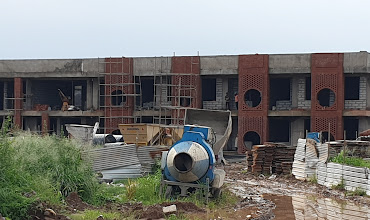Chandigarh: Avinash Malhotra is 55-year-old and suffers from bipolar disorder — but is stable and on medication. The parents passed away a few years back and he lives with the caretaker now. However, with age, things are becoming increasingly difficult for him — he knows it would be better to move to a specialised care facility.
The same holds true for Ragini Chibbar, who is 50 and is looked after by her mother. Suffering from schizophrenia, she too is on medication and stable but what will become of her after her mother is a thought that haunts them both.
They both are eagerly waiting for the first-of-its-kind group home under the new Mental Healthcare Act, for 90 residents being built over 2 acre at a cost of Rs 25 crore for members of persons with intellectual and mental disability by the Union Territory (UT) administration in Sector-31, Chandigarh.
While it took a massive effort by the parents of affected wards and city-based NGOs to convince the administration, another issue has cropped up even while the building is getting completed — who will manage it?
Up in arms against the proposed move of the UT administration to hand over the group home to an NGO for running its operations, the parents and stakeholders are demanding that it be run by the administration itself.
Aditya Vikram, founder of the Pushpanjali Trust, who along with city-based psychiatrist Simmi Warraich and others started the campaign and played a role in the formation of Citizen for Inclusive Living (CIL) tells IANS, “There has been complete radio silence from the administration with regard to our proposal that the home be run by them and not some NGO.”
Stressing that considering the scale of the operations, it would not be possible for any private social organisation to do the job effortlessly, he adds, “We are ready to provide staff training, etc, and recently sent out a 16-page document as an official representation fon how the home should be run. The administration is yet to respond.”
Vikram, who has closely studied such homes across the world and has devoted himself full-time to the cause, says there is no such NGO in India equipped enough to handle the home.
“And we all have seen what happened to many major NGOs when the pandemic struck. Several were forced to shut shop and eat from their corpus.”
He claims the administration is shying away from the responsibility as there is no example of such a home that can be followed.
“One can see the general tendency on the part of the government — withdrawing from social welfare activities. When we approached the Haryana and Punjab governments for setting up the home, the first thing that was asked was if such a home exists anywhere else. The Mental Health Care Act is new, and this could be a model group home for other states, so it is even more important to put good systems in place. This city perhaps has the highest per capita of psychiatrists, and psychologists.”
Not that it was easy for CIL to convince the administration to take up the project in the first place. It took a PIL and more than 700 emails to the previous and current administrations, the Prime Minister, the President and the Home Minister.
The building will have basement parking for more than 60 cars, 30 twin-sharing rooms, 18 single rooms and 13 suites. CIL has proposed that those availing single rooms and suites may be charged extra.
–IANS


Comments are closed.